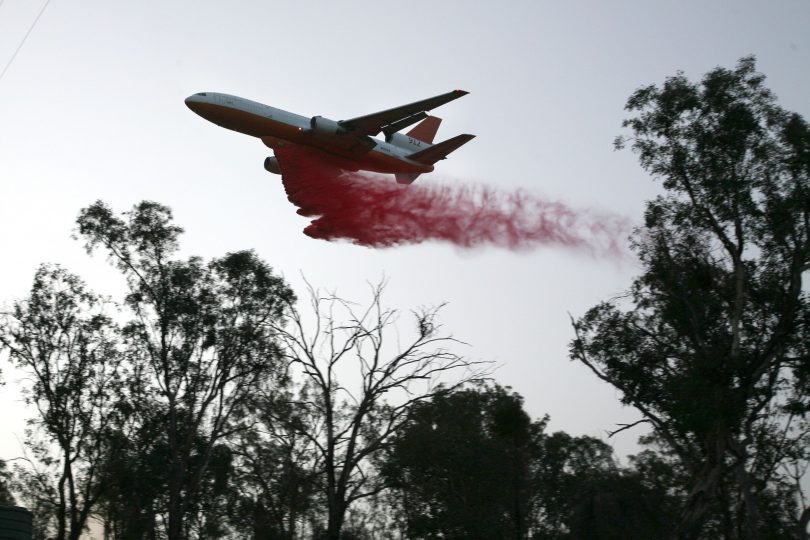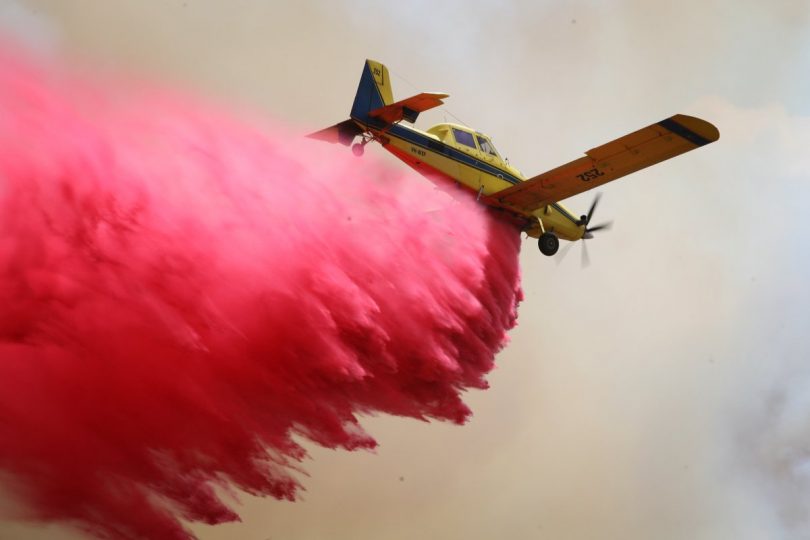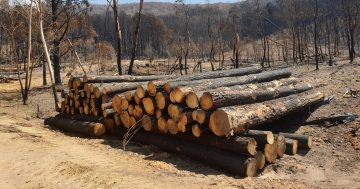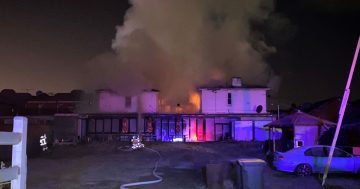
DC-10 Air Tanker 912 conducts a fire retardant drop behind the village of Tharwa on 1 February, 2020. Photo: ACT Emergency Services Agency.
Manufacturing shutdowns and delays due to the COVID-19 pandemic could significantly hamper Australia’s bushfire fighting capacity with all fire retardant being imported from one US supplier and no domestic manufacturer, the Royal Commission into National Natural Disaster Arrangements has heard.
Director-general of Emergency Management Australia Robert Cameron said during the bushfire season, states, territories, the Australian Defence Force and international military assistance combined to sure up the supply of fire retardant.
“I am of the view that the risks inherent in that supply chain – well served as we are by that particular manufacturer and importer – would be mitigated significantly were there to be onshore manufacture,” he said.
“That is probably where we should be focusing. Anything that is shipped has got quite the time lag and, if there is a sudden spike in demand, obviously there is a delay in getting replacement.”
The importance of firefighters being able to hit a developing bushfire hard and fast before it becomes out of control in high-risk conditions was a common theme in the lead up to Mr Cameron’s testimony about whether Australia should have a national cache of fire retardant, similar to the national medical stockpile.

Fire retardant is dropped on Mount Tennent to quell bushfire flames in February 2020. Photo: ACT Emergency Services Agency.
Commissioner of the National COVID-19 Coordination Commission Advisory Board, Jane Halton, told the royal commission that the pandemic had already highlighted what the country needs to do when otherwise readily available supplies become scarce.
“We are self-sufficient in a number of things, and the good news is there is plenty of food in this country,” she said. “But when it comes to medical supplies, I think everyone is very familiar with the issues in respect to access to personal protective equipment.
“I think until such time as we have gone through this experience, nobody had thought through what the logistics of those supply chains were, and put arrangements in place to actually make, as seamless as possible, the recognition of a potential shortage through to the repurposing and supply of products as part of the system.
“There are lessons we can learn which go to the fact that somebody somewhere should have knowledge of where our essential supply chains are; how to potentially disrupt those and what would make them more robust.”
Ex-ACT Emergency Services Authority Commissioner Peter Dunn previously told Region Media that “you need to have enough aircraft on catastrophic days to have them in the air, loaded up and ready to drop when you experience conditions such as we did in all states during the Black Summer”.
“We need to attack very quickly when a fire starts in the bush … we need to have things such as heavy airtankers doing retardant bombings, and we need more of them,” he said.
The Royal Commission into National Natural Disaster Arrangements focused on national coordination this week, examining situational awareness, decision making and resource sharing at a national level.
More information can be found here.
Original Article published by Dominic Giannini on The RiotACT.





